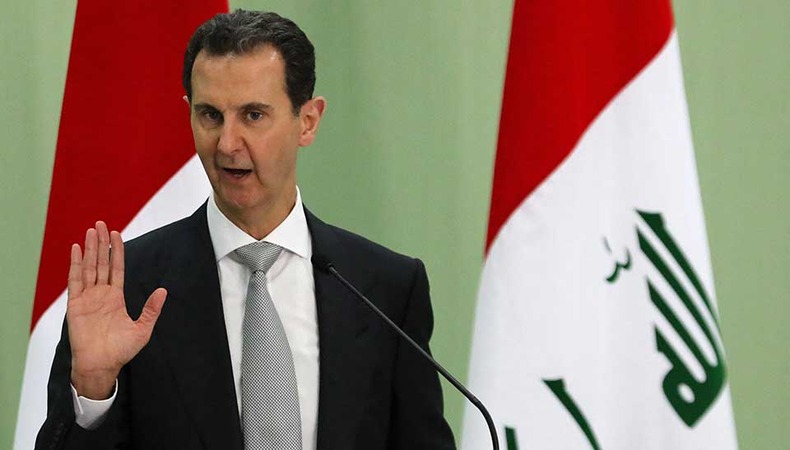French Arrest Warrant Out for Syria President, Interpol Next

Syria President Bashar al-Assad’s days may be nearing an end as France has issued an arrest weapon for him over the use of banned chemical weapons. Interpol’s Red Notice could be next. Four warrants have been issued against Assad, his brother Maher al-Assad, and two other senior officials for complicity in crimes against humanity and complicity in war crimes.
The Syrian government, as per various reports, was accused of using poison gas in Ghouta, a suburb in Damascus. First such case was revealed in December 2012 when seven people were allegedly killed in Homs by a “poisonous gas” used by the Assad regime. There were reports of side effects among civilians – nausea, blurred vision, relaxed muscles and breathing difficulties.
In 2013, Syrian forces alleged used chemical weapons in two cities – Khan al-Assel neighborhood of Aleppo and the Damascus suburb of al-Atebeh, wherein 25 people were reportedly killed and dozens injured. The French government Syrian forces used “sarin”, a nerve agent that is one of the most toxic of the known chemical warfare agents.
Assad Arrest Warrant is Historic
The French move is being said to be an unprecedented and historic, first time a nation has issued an arrest warrant for crimes against humanity for a sitting head of state in another country. Jeanne Sulzer, a lawyer at the Paris Bar who represent the plaintiffs, and non-governmental organizations behind the complaint, applauded the decision. “It marks a crucial milestone in the battle against impunity. It signifies a positive evolution in case law recognizing the grave nature of the crimes committed.”
She said this is a procedural act as the investigation into the 2013 attacks in Eastern Ghouta and Douma continues. “The four individuals named in the arrest warrants can be arrested and brought to France for questioning.”
Mazen Darwish, director of the center, described the warrants as a new victory for the victims, their families and survivors of the 2013 attacks. Alaa Makhzoumi, a survivor of the chemical attack in Eastern Ghouta, said the French decision is an initial step towards achieving justice and fulfilling the rights of all martyrs and victims lost that day. She highlighted that she, her husband and son suffered respiratory problems after the attack, and her younger child was born with birth defects which are linked to chemical exposure.
Keep Reading
Moldova Torn Between Russia and the EU
China Eager to Stabilize Bilateral Relations With US
Syria Accountable for Chemical Weapons
United Nations chemical weapons experts have accused the al-Assad-led regime in Syria for using sarin, chlorine and mustard gas against civilians in the country on several occasions. But the Syrian government argued that foreign fighters and international backers were responsible for the Ghouta attacks.
Data and reports highlight 345 chemical weapons attacks across Syria since 2011. Former US President Barack Obama had also warned Assad that using chemical weapons would be a red line that could push the United States into military action.




